Tillerson fights negative perceptions, Chinese influence, terrorism in first trip to Africa
Secretary of State Tillerson is visiting Africa 13 months into his tenure.
Secretary of State Rex Tillerson is making a week-long, five-nation visit to Africa where he's expected to reaffirm the U.S. commitment to development, democracy, security, and trade.
But he does so against the harsh perception that the Trump administration does not care about Africa - after proposing deep budget cuts to U.S. programs there, President Donald Trump's derogatory comments about African nations and the lack of a high-profile visit to any sub-Saharan African country after more than a year in office.
Tillerson will be the highest-ranking administration official to visit, with a message of partnership and prosperity - to fend off China's economic advances in the region - and of stability and security to counter the growing terror threat in some countries.
With stops in Chad, Djibouti, Ethiopia, Kenya, and Nigeria, here are the top issues he will have to tackle:
PUSHING BACK ON PERCEPTIONS
When Trump referred to African nations and Haiti as "s---hole" countries and asked why the U.S. couldn't take in more immigrants from countries like Norway, it sparked outrage and real protests - but it also fed a perception that the Trump administration has not cared about Africa.
Trump eventually denied using the term, but the African Union, the continent's economic and political body, demanded a retraction and an apology "not only to the Africans, but to all people of African descent around the globe."
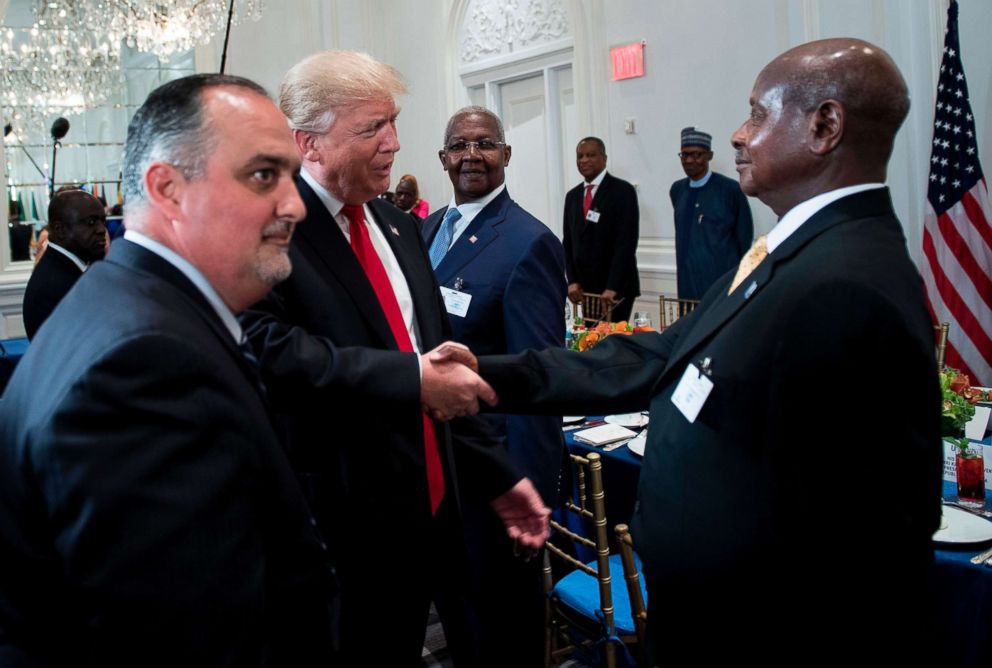
The AU also nearly passed a resolution blasting Trump for "promoting racism, xenophobia and bigotry," according to a draft obtained by the Associated Press and Reuters, before the body tabled it after a last-minute intervention by Trump to express his respect for Africa.
Now, while the comments still sting for many and color their perception of the U.S., most leaders are ready to move past them and onto how they can work with the U.S., two African diplomats in Washington told ABC News.
While the U.S. is at its lowest popularity in Africa in over a decade, it still has majority approval - with 51% approving of American leadership, according to a survey by Gallup published in January. By comparison, U.S. popularity soared to 85% in 2009 when Barack Obama, whose father was born in Kenya, was inaugurated - but fell to 53% in 2016.
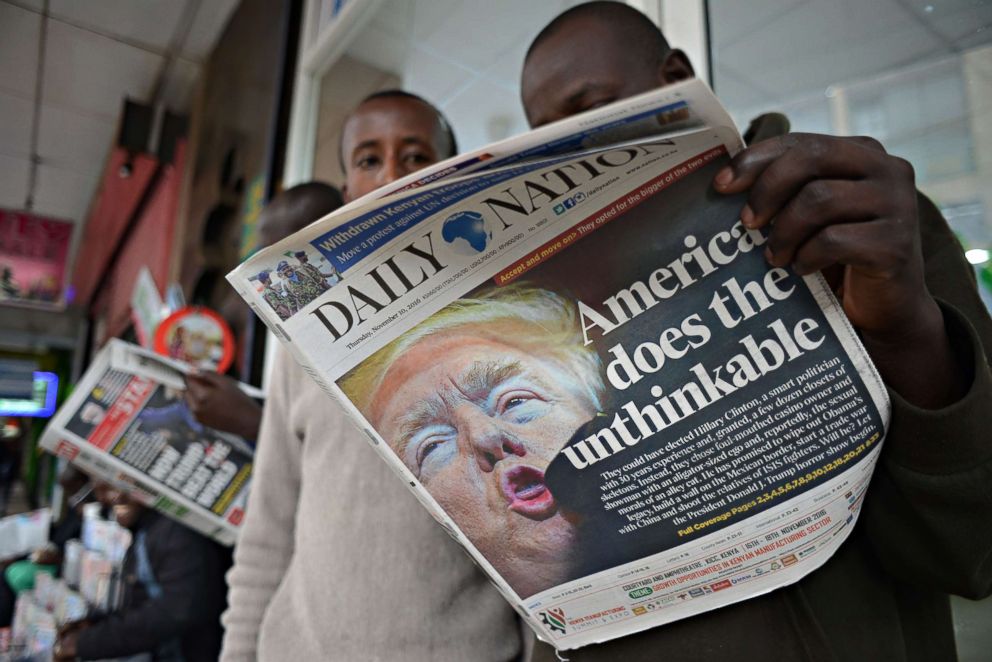
To regain support, State Department officials said, Tillerson will do a lot of listening during his trip.
"There’s really no deliverables," a senior State Department official told reporters Friday, using diplomatic jargon for a tangible outcome. "For the Secretary of State, and for our trip now, it’s really to underscore the commitment of the United States to Africa but also to explore with the leadership in each of the countries about what we want to achieve together as partners, but also in our overall program."
The State Department still does not have an Assistant Secretary of State for Africa - the top diplomat for the region - or ambassadors in several countries across the continent, including Central African Republic, Democratic Republic of Congo, and South Africa.
COMPETING WITH CHINA
Working together will also be difficult because of the big proposed cuts to the State Department and U.S. Agency for International Development, or USAID. The administration's FY2019 budget proposal in February called for a 37% cut to programs in Africa, down $3.1 billion from current levels, according to the U.S. Global Leadership Coalition, a bipartisan nonprofit that advocates for diplomacy.
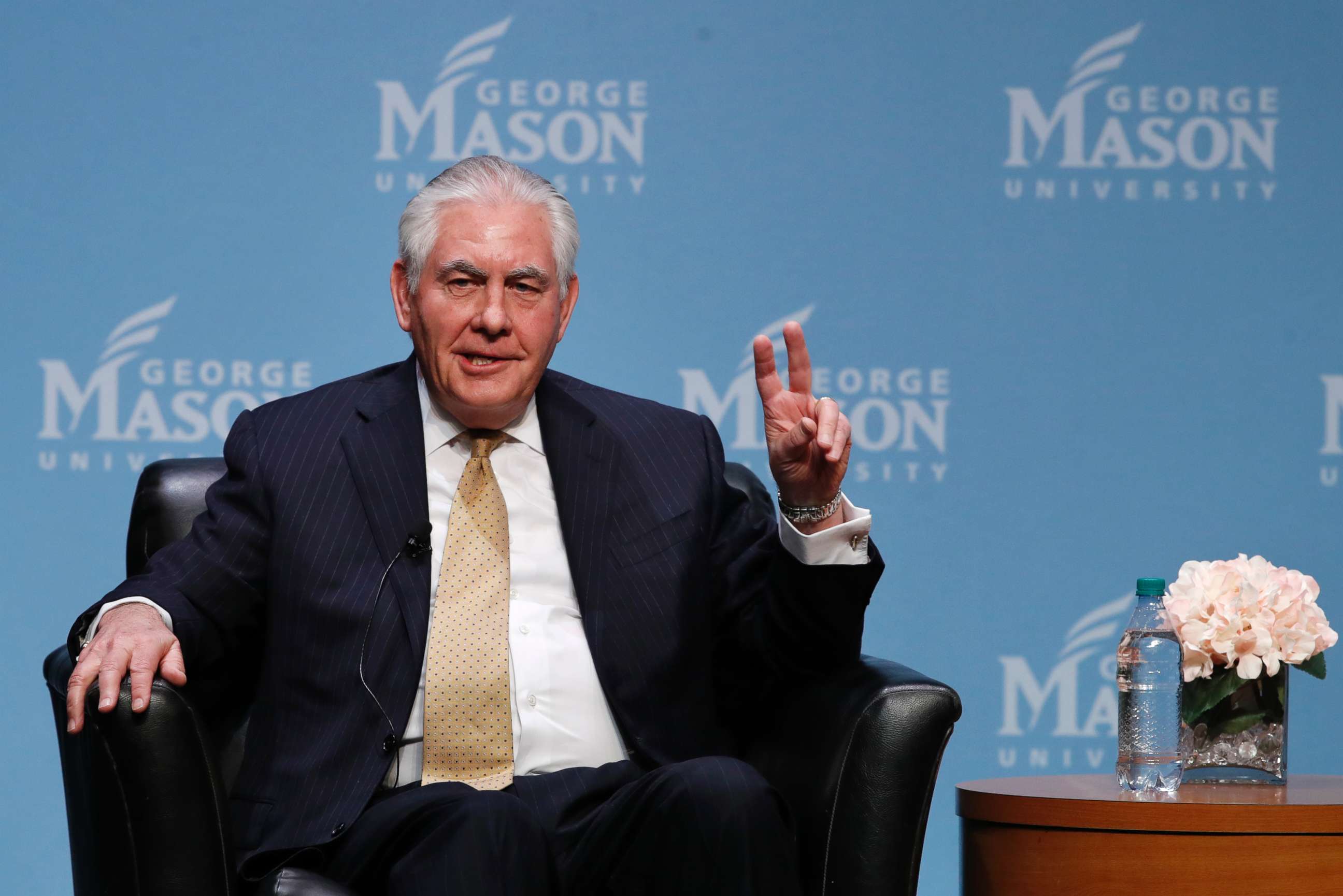
Tillerson did announce a new aid package Tuesday in a major address on U.S.-Africa relations - $533 million for famine and food insecurity in Ethiopia, Somalia, South Sudan, Nigeria, and the Lake Chad region. That brings the total U.S. aid to $3 billion for the food crises there since the beginning of FY 2017.
The problem is that that pales in comparison to China, which has unveiled historic new investments while Trump has proposed cuts to foreign aid and diplomacy.
China became Africa's largest trading partner in 2009, and during the 2000's, China's export-import bank loaned Africa roughly $67 billion.
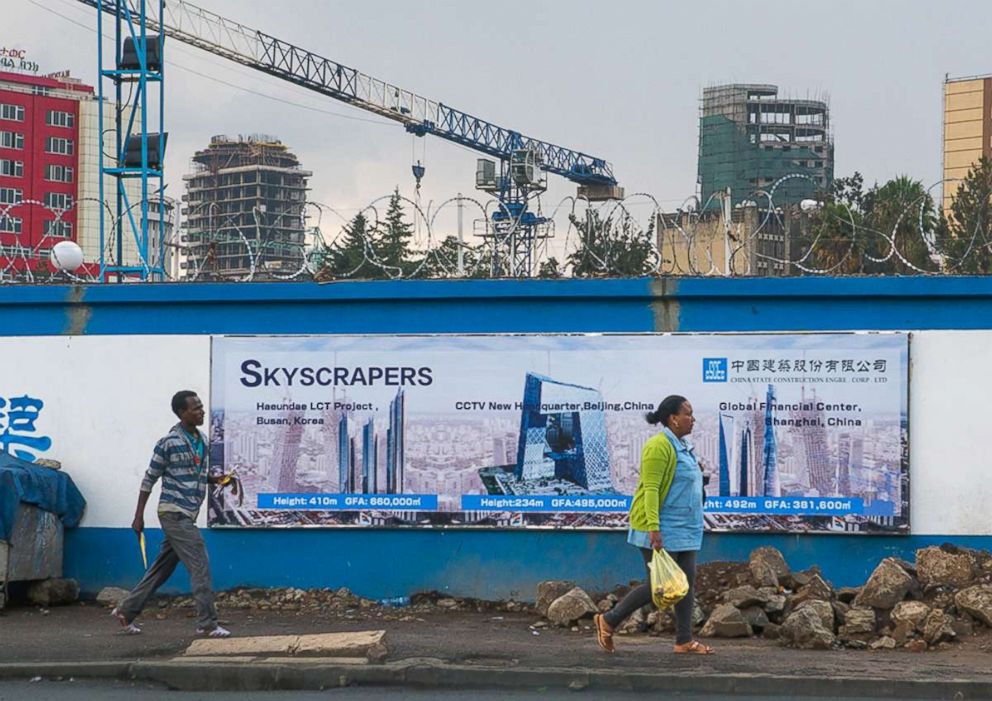
That financial support has increased even more since then. In 2015, Chinese President Xi Jinping pledged $60 billion in loans and credit to Africa by 2020, and as part of its $1 trillion "One Belt, One Road" initiative, the country is also preparing to build roads, bridges, ports, and railways throughout Africa and elsewhere.
Meanwhile, American exports to Africa have actually dropped from a high of $38 billion in 2014 to $22 billion in 2017, according to the U.S. Census Bureau.
To fight back against that big bill, Tillerson is set to argue that the U.S. provides a healthier path for African countries.
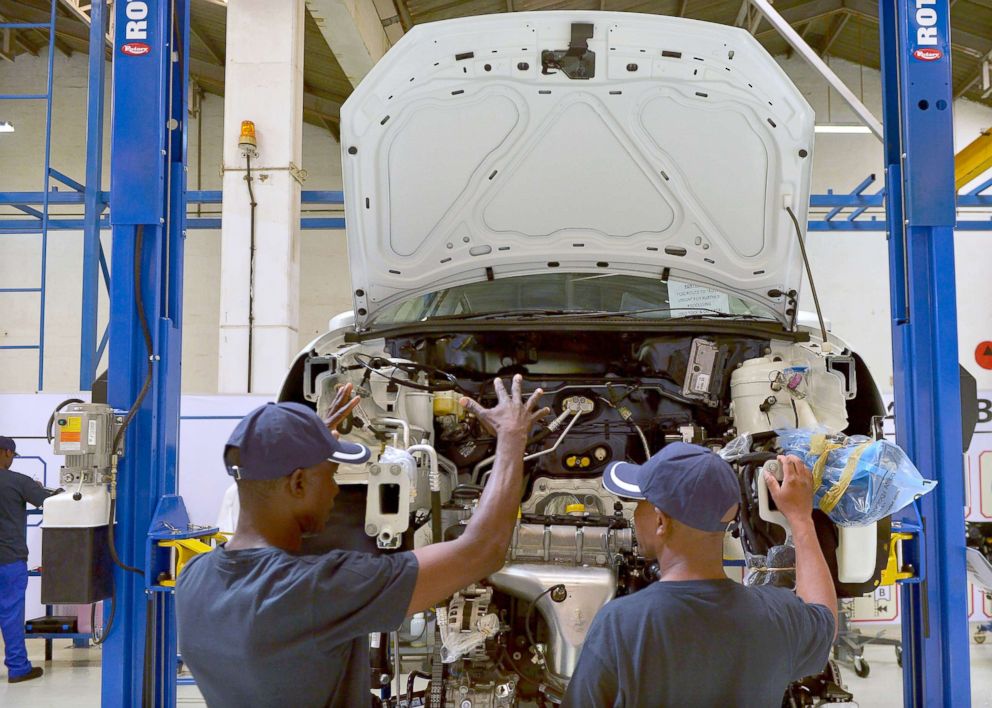
China's approach "encourages dependency using opaque contracts, predatory loan practices, and corrupt deals that mire nations in debt and undercut their sovereignty, denying them their long-term, self-sustaining growth," Tillerson said Tuesday at George Mason University. "Its approach has led to mounting debt and few, if any, jobs in most countries. When coupled with the political and fiscal pressure, this endangers Africa's natural resources and its long-term economic political stability."
Africa may welcome that message. While Chinese money still makes inroads, some countries are souring on the onerous contracts that come with it, often leading to debt and little jobs, according to two African diplomats in Washington, who added that Africa would rather welcome an equal partnership with America, whose "brand" is still strong.
A sign of its growing international reach, China also has its first overseas military base in Africa, in a small country on the Horn of Africa called Djibouti. The U.S. also has a base there, and Tillerson will visit the country on this trip, critical for its location at the Bab al-Mandab Strait, a major shipping route, and across from war-torn Yemen.
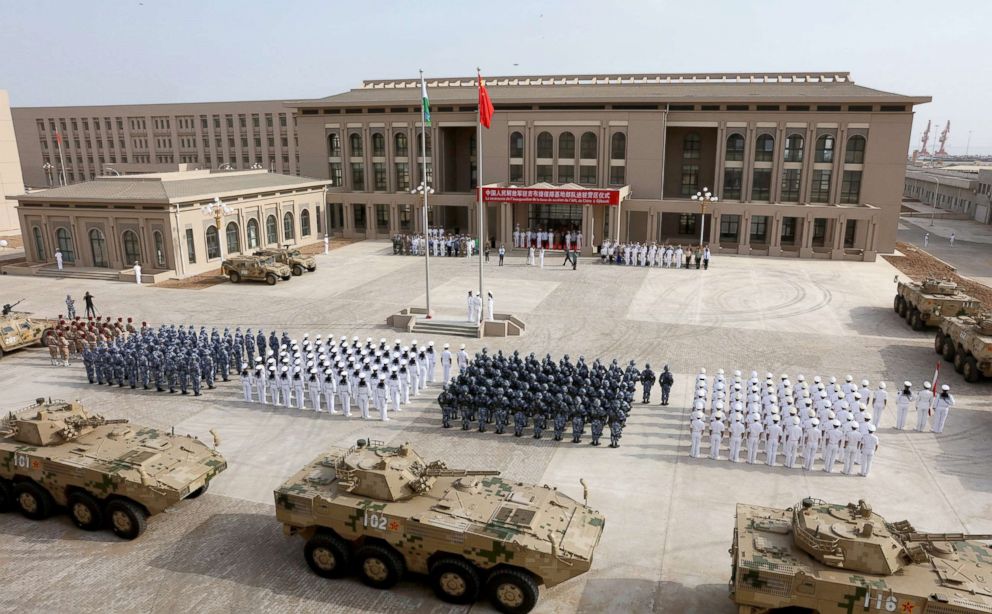
It's clear that Africa will be the scene of that growing competition - while also increasing its own power.
As Tillerson noted in his speech, by 2030 Africa will represent a quarter of the world's workforce, and this year, six of the ten fastest growing economies in the world are in Africa, according to World Bank estimates. Nigeria alone will have a population larger than the U.S.'s and economy larger than Australia's by 2050.
COUNTERING ISIS AND OTHER TERRORISTS
Given those enormous growths in population, economic opportunity will be key to stability and security, including staving off terrorist recruitment, Tillerson warned.
It's a threat that has grown in recent years throughout Africa, with an increase in terrorist attacks against Western interests from 132 between 2007 and 2011 to 358 between 2012 and 2017, according to a new report by the Foundation for Defense of Democracies. Tillerson put the total number of terrorist attacks even higher, from less than 300 in 2009 to more than 1,500 in 2015, 2016, and 2017 each.
Those include stories that have gripped the headlines - young women and girls kidnapped by Boko Haram in Nigeria; a bloody assault on a posh mall in Nairobi, Kenya; bombings at World Cup watch parties in Kampala, Uganda; and four U.S. soldiers killed in a deadly ambush in Niger.
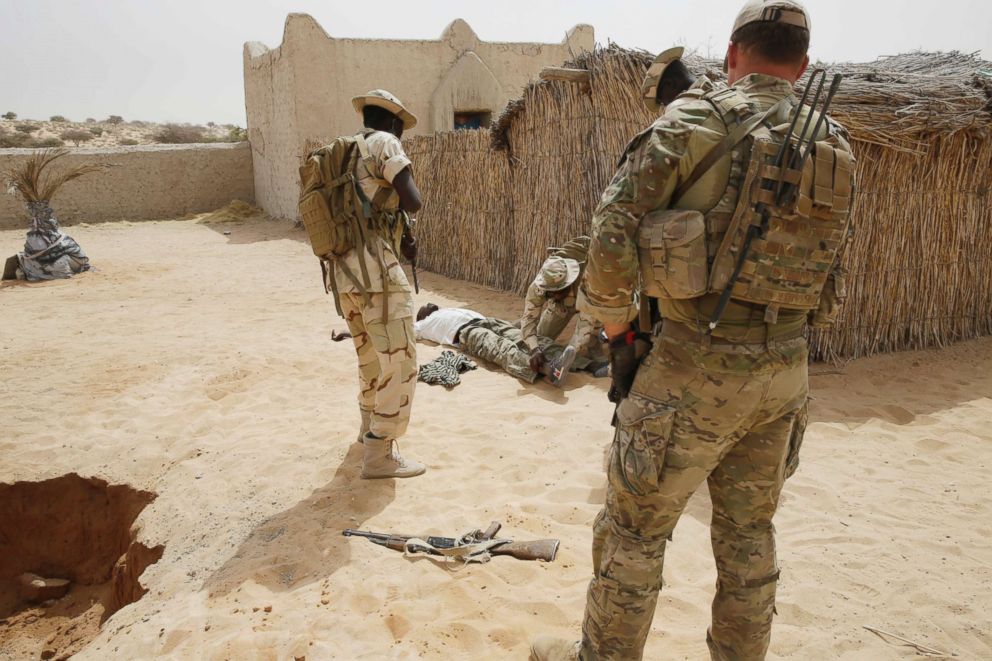
The U.S. is increasingly fighting back by supporting local military forces and attempting to catch up with the complex network of groups throughout Africa.
Last week, Tillerson designated seven ISIS-affiliated groups around the world to cut off their funding, including ISIS-West Africa in Nigeria and ISIS-Somalia. The U.S. also announced $60 million in funds for the G5 Sahel countries -- Niger, Chad, Burkina Faso, Mali, and Mauritania -- which have battled a host of terror threats, from al Qaeda in the Maghreb to newer ISIS affiliates.
Tillerson will meet with foreign ministers from the G5 countries in Chad, the first visit of a secretary of state to the country - a historic stop to quell the country's anger over its inclusion on Trump's second travel ban.




